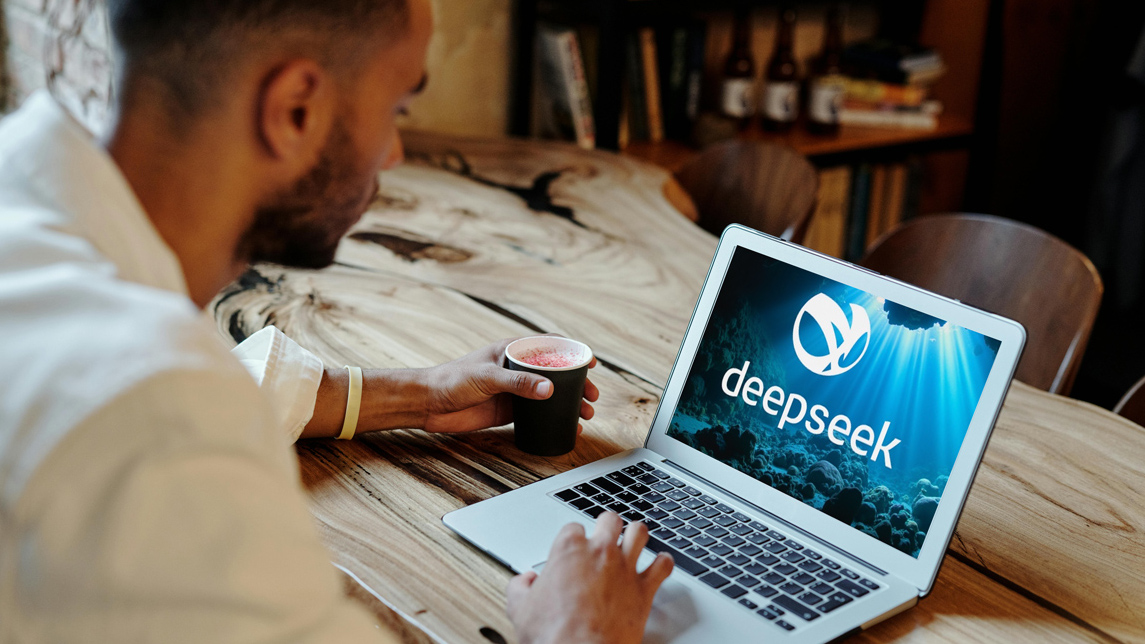DeepSeek R1 is the new Chinese AI model threatening OpenAI — what you need to know
Open source AI takes a huge leap forward

There's no doubt about it, DeepSeek R1 is a Very. Big. Deal. There’s a lot of hype in the AI business, as is the way with most new technologies. But occasionally a newcomer arrives which really does have a genuine claim as a major disruptive force. DeepSeek R1 is such a creature (you can access the model for yourself here).
As reported by CNBC, DeepSeek app has already surpassed ChatGPT as the top free app in Apple's App Store. And several tech giants have seen their stocks take a major hit. This includes Nvidia, which is down 13% this morning.
On the face of it, it's just a new Chinese AI model, and there’s no shortage of these launching every week. But there are two key things which make DeepSeek R1 different.
First, people are talking about it as having the same performance as OpenAI’s o1 model. To recap, o1 is the current world leader in AI models, because of its ability to reason before giving an answer. This makes it extremely powerful for more complex tasks, which AI typically struggles with.
The fact that a newcomer has leapt into contention with the market leader in one go is astonishing.
The fact that a newcomer has leapt into contention with the market leader in one go is astonishing.
Second, not only is this new model delivering almost the same performance as the o1 model, but it’s also open source. This means that any AI researcher or engineer across the world can work to improve and fine tune it for different applications.
That’s a quantum leap in terms of the potential speed of development we’re likely to see in AI over the coming months. This is no longer a situation where one or two companies control the AI space, now there's a huge global community which can contribute to the progress of these amazing new tools.
Sign up to get the BEST of Tom's Guide direct to your inbox.
Get instant access to breaking news, the hottest reviews, great deals and helpful tips.
To add insult to injury, the DeepSeek family of models was trained and developed in just two months for a paltry $5.6 million. This compares to the billion dollar development costs of the major incumbents like OpenAI and Anthropic.
To say it’s a slap in the face to these tech giants is an understatement. The Chinese hedge fund owners of DeepSeek, High-Flyer, have a track record in AI development, so it’s not a complete surprise. What is a surprise is for them to have created something from scratch so quickly and cheaply, and without the benefit of access to state of the art western computing technology.
Of course ranking well on a benchmark is one thing, but most people now look for real world proof of how models perform on a day-to-day basis. Early reports suggest that the DeepSeek benchmarks aren’t lying, with a number of users adopting it for AI programming in preference over Anthropic’s Claude Sonnet 3.5.
Surprisingly the R1 model even seems to move the goalposts on more creative pursuits. One Reddit user posted a sample of some creative writing produced by the model, which is shockingly good.
Early days for DeepSeek

My own testing suggests that DeepSeek is also going to be popular for those wanting to use it locally on their own computers. In three small, admittedly unscientific, tests I did with the model I was bowled over by how well it did.
In one test I asked the model to help me track down a non-profit fundraising platform name I was looking for. A standard Google search, OpenAI and Gemini all failed to give me anywhere near the right answer. DeepSeek hit it in one go, which was staggering.
We are living in a timeline where a non-US company is keeping the original mission of OpenAI alive - truly open, frontier research that empowers all. It makes no sense. The most entertaining outcome is the most likely.DeepSeek-R1 not only open-sources a barrage of models but… pic.twitter.com/M7eZnEmCOYJanuary 20, 2025
It’s early days to pass final judgment on this new AI paradigm, but the results so far seem to be extremely promising. One thing I did notice, is the fact that prompting and the system prompt are extremely important when running the model locally.
Without a good prompt the results are definitely mediocre, or at least no real advance over existing local models. But when it gets it right, my goodness the sparks definitely do fly.
More from Tom's Guide

Nigel Powell is an author, columnist, and consultant with over 30 years of experience in the technology industry. He produced the weekly Don't Panic technology column in the Sunday Times newspaper for 16 years and is the author of the Sunday Times book of Computer Answers, published by Harper Collins. He has been a technology pundit on Sky Television's Global Village program and a regular contributor to BBC Radio Five's Men's Hour.
He has an Honours degree in law (LLB) and a Master's Degree in Business Administration (MBA), and his work has made him an expert in all things software, AI, security, privacy, mobile, and other tech innovations. Nigel currently lives in West London and enjoys spending time meditating and listening to music.

